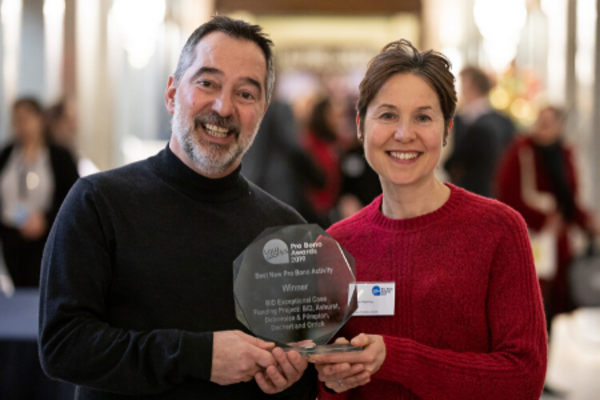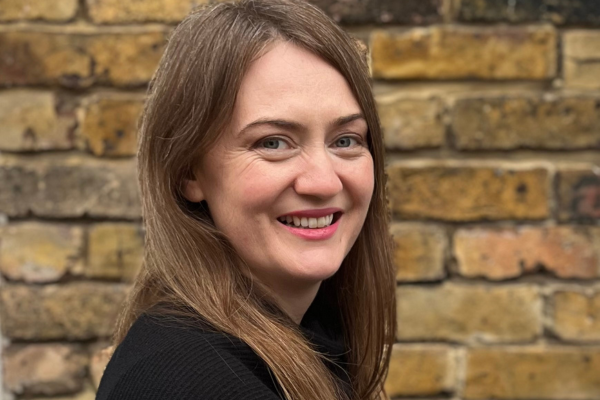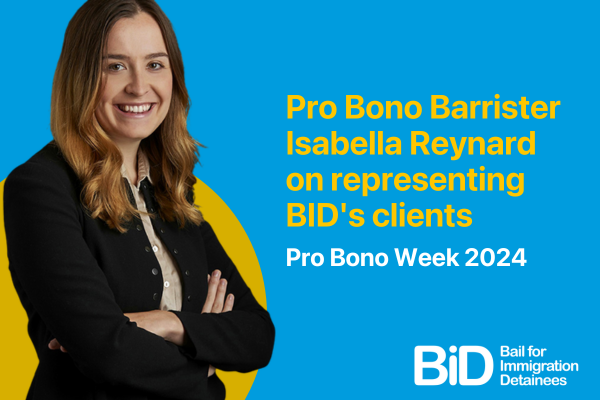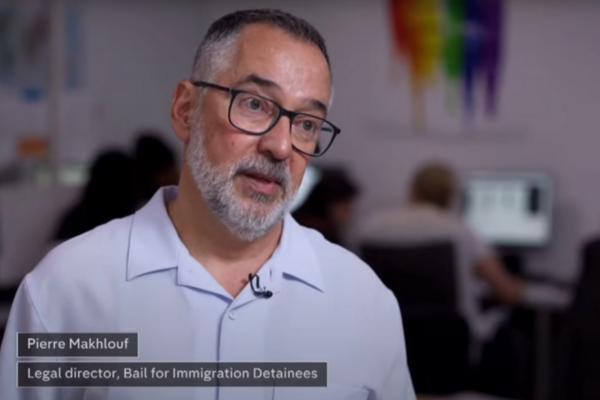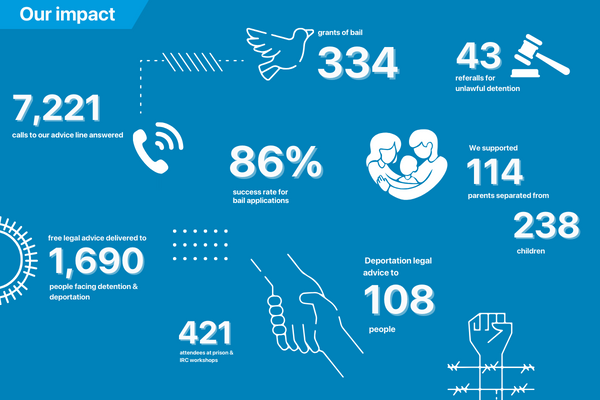BID’s Exceptional Case Funding (ECF) project in partnership with Ashurst, Debevoise & Plimpton, Dechert and Orrick has been awarded “Best New Pro Bono Activity” in the Law Works Pro-Bono Awards 2019. The awards celebrate the best legal pro bono activities undertaken by organisations and individuals and the positive impact they have had on those helped.
The President of the Supreme Court Lady Hale spoke of her concerns about the LASPO Legal aid cuts and the implications this has for a healthy democracy before presenting the team with their award for the ECF project which aims to specifically addresses these issues.
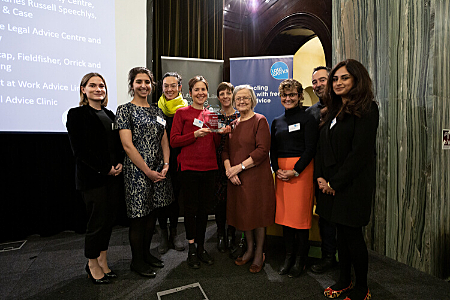
The situation for people in detention facing deportation was worsened in 2013 when as part of the LASPO cuts immigration law was largely removed from the scope of legal aid. This forced people to navigate the deportation appeals process without affordable legal advice at a hugely stressful time in their lives. For the overwhelming majority of BID clients, paying a lawyer privately is prohibitively expensive, particularly as many cases require costly expert reports, in addition to legal fees.
ECF is a form of legal aid, but for areas of law that fall outside the scope of mainstream legal aid. Successful ECF applications allow clients to access publicly funded advice and representation to make the case against deportation.
Launched in January 2019 in partnership with Ashurst, Debevoise & Plimpton, Dechert and Orrick the ECF project sees trained volunteer lawyers apply for ECF on behalf of clients facing deportation and has already delivered 731 hours of pro bono legal work.
Celia Clarke, BID director commented:
“We are absolutely delighted with the award which is testament to the commitment, determination and hard work of our law firm partners Ashurst, Debevoise & Plimpton, Dechert and Orrick as well as BID staff and volunteers. The driving force behind the project was to ensure that those facing the possibility of permanent exile from the UK would at least have legal representation to argue their case to remain. We are pleased that the ECF project goes some way to enabling more people to access their right to justice.”

